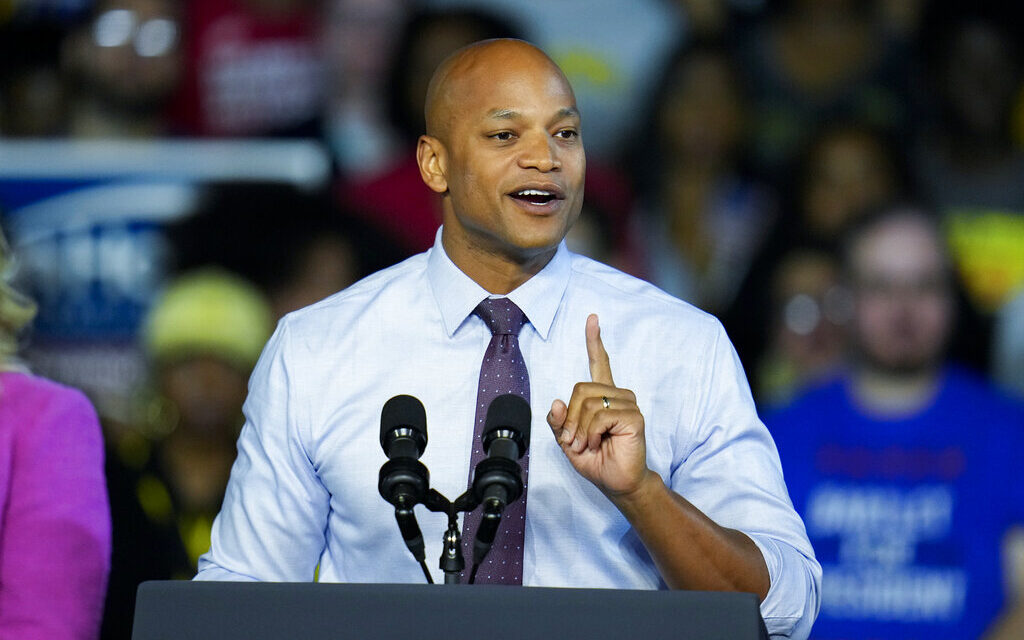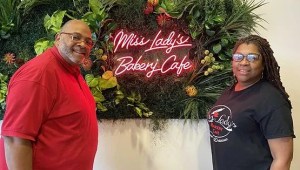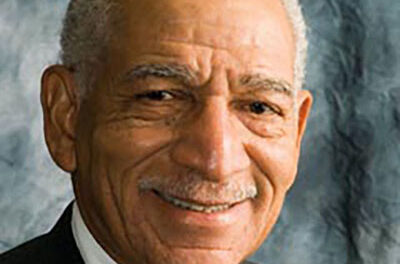By Tashi McQueen
AFRO Political Writer
tmcqueen@afro.com
And
By Megan Sayles
AFRO Business Writer
msayles@afro.com
In celebration of Black History Month, the AFRO sat down with Governor Wes Moore, the first Black man to lead the great state of Maryland.
Moore became the 63rd governor of the state on Jan. 18, 2023, in a historic ceremony outside of the Maryland State House with star guests, such as actress, author and producer Oprah Winfrey. Before becoming the executive leader he was a businessman, author and military man.
He served as a U.S. Army captain with the 82nd Airborne Division and produced several books addressing racial plights and inequities including “Five Days,” a book about Baltimore in the days after the death of Freddie Gray in 2015. Now, Moore is doing the work of creating equity in Maryland by closing the racial wealth gap in the state, raising the minimum wage and requiring that minority business enterprise goals be met- not just considered.
This week, Moore spoke on the Black men that paved the way for him, the strength of being “unapologetically Black” and the ancestors who have guided his path.
Q: Is it a challenge to advocate for Black Marylanders as governor, in this current political climate?
A: I’m a Black governor. I was Black before I was governor. I’m not going to stop being who I am. I think the challenge would be for me to not . I am unapologetic about the fact that we are going to close this racial wealth gap. If people say to me, ‘Isn’t that focusing on a group?’ No. Over the past two decades, the racial wealth gap has cost this country $16 trillion in gross domestic product (GDP). We are never going to be able to address these issues with colorblind policies –we didn’t get here because of colorblind policies. The policies that got us here in the first place were very color tinted.
I think we have to have a measure of intentionality if you actually want to increase economic growth that is going to, in turn, benefit the whole state.
Q: Can you name a Black mentor that made a difference in your life and speak on the importance of Black youth having strong, Black mentors?
A: Kurt Schmoke. He’s just someone who has always been a North Star for me and has always given me clear, cogent and thoughtful, nonjudgmental advice.
We unfortunately live in a society where people will almost force you to consistently justify your existence and your participation.
The beauty of Black male role models is I never had to justify who I was to them, because they saw me before I walked in the room. There’s power that comes with that and there’s empowerment from that. I feel protected because I know who’s protecting me. There’s a real power.
I still call him to this day.
Q: What are the top Black novels that inspired you?
A: “The Fire Next Time.” I’m a big James Baldwin fan. I think it’s difficult to think about my favorite Baldwin work. If you gave me a second choice, I would say “Beloved,” by Toni Morrison.
Q: What are your favorite Black films?
A: “I’m Not Your Negro” was fantastic.
I think James Baldwin was brilliant. He was so unapologetic about who he was and I love that. He lived and he led with such a sense of fearlessness. He knew–in almost every classification of who he was– he was heard. He lived in a way that he was never going to be uncomfortable in your space because he was always going to be comfortable with himself.
I don’t lack a sense of comfort anywhere that I am because there is nothing nor anybody that ever makes me flinch. I think we’re just built differently.
I see who I’m surrounded by–I know who paved all these steps that we walk on and so I never ever feel a measure of intimidation or insufficiency. I just know that everything I do– it’s because there were people who were willing to sacrifice in a way that is incomprehensible, but they did it for the hope of me and all of us.
“Love and Basketball” is another one. This article has been edited for brevity and clarity.
Tashi McQueen and Megan Sayles are Report For America corps members.
The post Maryland Gov. Wes Moore speaks on the authors and mentors who shaped his path appeared first on AFRO American Newspapers.











